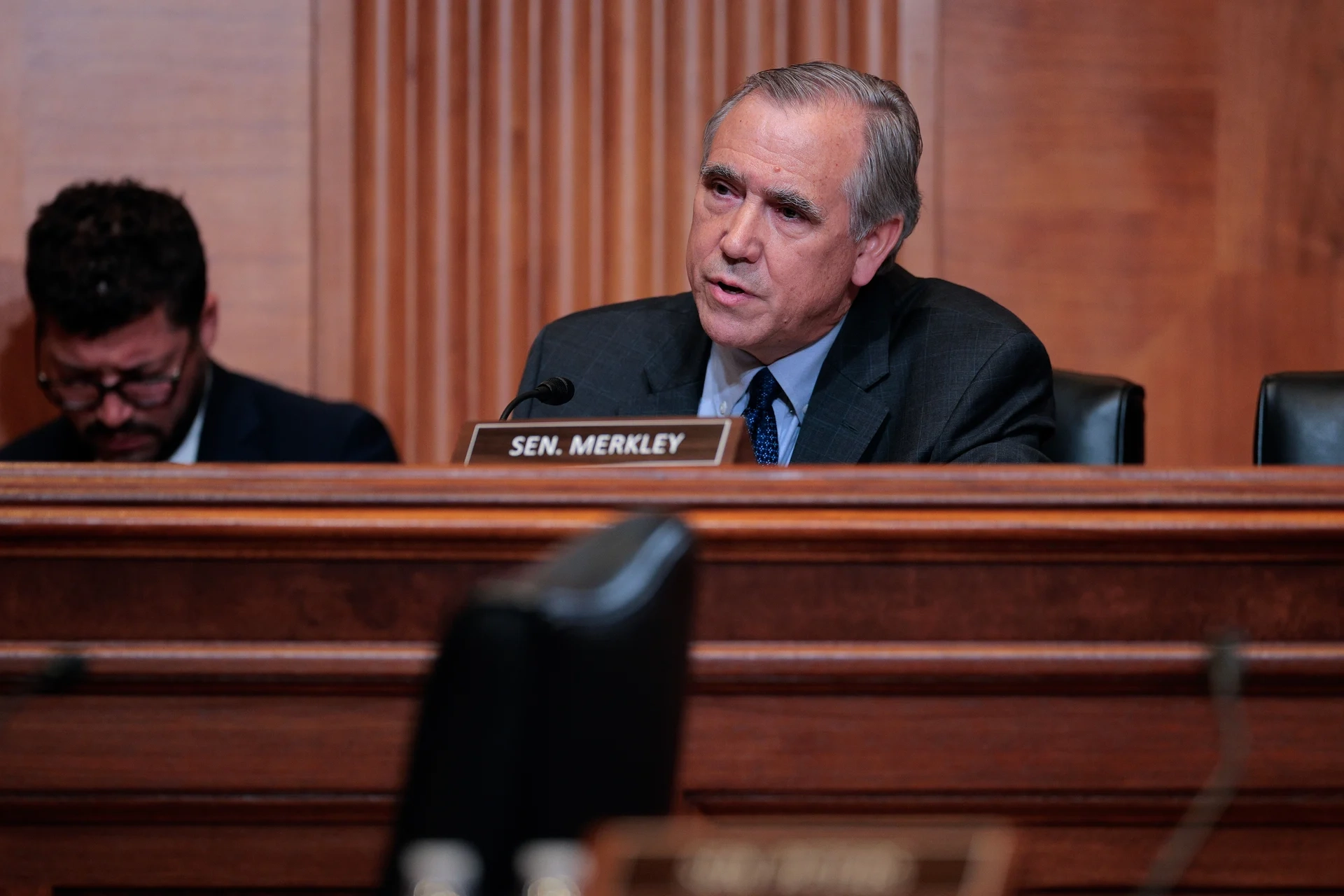
Chip Somodevilla/Getty Images
The Senate parliamentarian has asked for a rewrite of a controversial artificial intelligence (AI) provision included in President Trumps sweeping tax package, raising concerns that the measure could violate Senate reconciliation rules, which limit what policies can be included in budget-related bills.
Under its current language, the provision in Trump's "big, beautiful bill" would block states from regulating AI models and systems if they wish to access $500 million in federal funding for AI infrastructure and deployment. Senate Commerce Republicans argue the latest draft clarifies that the optional funding would not override state laws in areas such as consumer protection and intellectual property.
Despite those adjustments, Democrats maintain the measure could impact broader funding programs, including $42 billion in broadband grants, and fails to comply with the Byrd Rule, which prohibits provisions that make significant policy changes unrelated to the budget.
The parliamentarians latest review also advised that several provisions in the Republicans big, beautiful bill would be subject to a 60-vote threshold if they remain in the legislation. The affected provisions fall under the jurisdictions of the Judiciary Committee and Commerce Committee.
The AI provision has sparked bipartisan concerns, with some Republicans opposing its inclusion while House conservatives warn that Congress does not yet fully understand AIs implications to justify blocking state oversight.
Senator Jeff Merkley, the Senate Commerce Committees ranking member, criticized the broader bills priorities following the parliamentarians request for revisions. We have been successful in removing parts of this bill that hurt families and workers, but the process is not over, and Democrats are continuing to make the case against every provision in this Big, Beautiful Betrayal of a bill that violates Senate rules, Merkley said. Republicans are actively attempting to rewrite major sections of this bill to advance their families lose, and billionaires win agenda, but Democrats are scrutinizing all changes to ensure the rules of reconciliation are enforced. We cannot let Republicans succeed in betraying middle-class families across this country.
Environmental experts have also raised alarms about the measures potential impact, noting that AIs rapidly growing electricity demands could generate around 1 billion tons of carbon dioxide in the U.S. over the next decademore than Japan emits annually. Critics argue that restricting state oversight could delay the adoption of energy-efficient AI operations and slow transitions to cleaner energy sources.
The parliamentarians request for a rewrite adds another hurdle for GOP leadership as they work to finalize the legislation through the reconciliation process, which allows budget-related bills to bypass a Senate filibuster with a simple majority vote. For now, it remains unclear when the AI provision will be revised or whether it will remain in the final package sent to the Senate floor.


